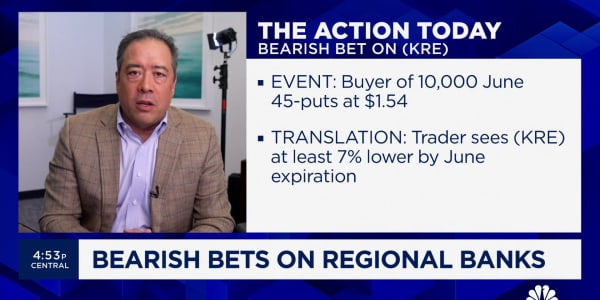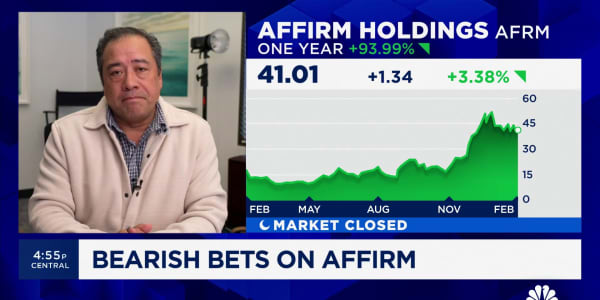It's a common refrain on CNBC: There's too much regulation and Dodd Frank is killing the banks.
But if MF Global's demiseshows anything, it's that rules are sometimes necessary. Since MF was a broker dealer, and not a bank holding company, it was able to skirt recent regulations designed to rein-in risk.
"Management was running MF as if it were 2007," said Dick Bove (Neutral). "And obviously the result was not great. MF's collapse validates Dodd Frank."
In the depths of the financial crisis, Morgan Stanley and Goldman Sachs changed their charters to become so-called bank holding companies, which gave them access to the cheap funding in exchange for more regulatory oversight. The Volker rule took that oversight a step further, aiming to prevent investment banks from making the type of proprietary trades that ultimately took down Lehman, Bear and now MF.
There are few publicly traded pure institutional broker dealers anymore, but one, is under significant selling pressure today: Jefferies.
The company came out this morning and stated that it had "no meaningful exposure" to PIIG debt . But while investors focus on the balance sheet, it's the business model that might deserve more scrutiny. Jefferies runs an agency trading business, meaning they facilitate trades and underwrite securities on behalf of customers. But while its businesses far less risky than one MF was running, the price action in Jefferies today indicates that some investors believe more regulation for broker dealers could be in the offing.
Said Ticonderoga's Doug Sipkin (Neutral): "The speed of MF's fall could be an impetus for more regulation down the road."
Watch Options Actionon CNBC Fridays 5:00pm ET, Saturdays at 6a ET and on Sundays at 6a ET
Questions, comments send them to us at: optionsaction@cnbc.com





